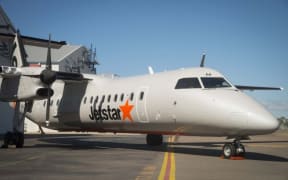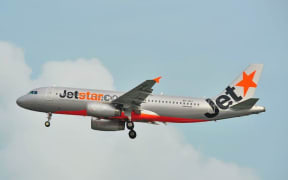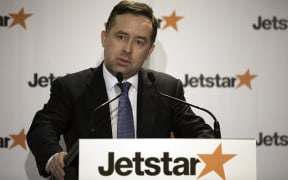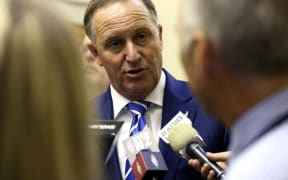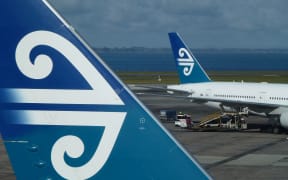Councils are lobbying the government for better transport options, saying Air New Zealand's departure from some centres shows how vulnerable regions can be.
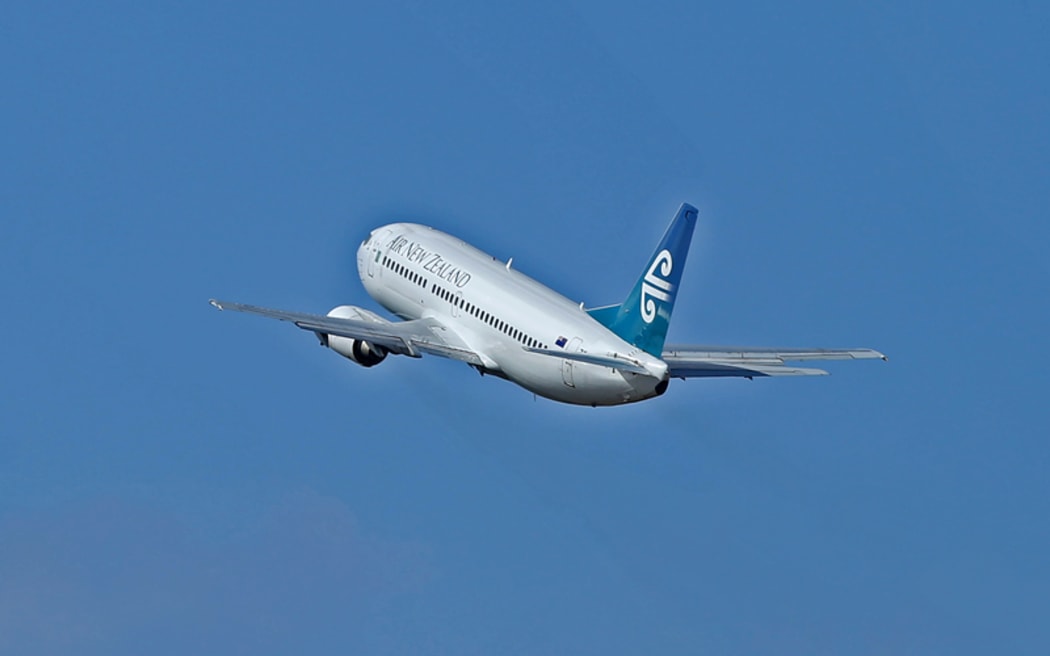
Photo: RNZ / Alexander Robertson
The departure of the national carrier from regional centres contributes to the risk of a two-tier economy, with some regions moving ahead while others are left behind, councils argue.
Air New Zealand has so far this year scrapped flights to Kaitaia, Whakatane and Westport.
It is also phasing out services on its 19 seat aircraft to other smaller centres, promising larger planes and cheaper airfares.
But Far North District mayor John Carter said the move could result in fewer flights, which could increase passenger fees.
People may have to pay for accommodation if they cannot get connecting flights.
"We do know that it's going to have a negative impact on a number of places. That's why Local Government New Zealand has taken an interest in it, because they are concerned at the impact it will have on our rural and provincial areas," he said.
There were rumours daily flights between Hokitika and Christchurch would be reduced from three to two, but the size of the plane would be increased.
Westland District Council mayor Mike Havill would not comment, saying negotiations were ongoing and he was hopeful of a positive outcome.
In a statement, Air New Zealand said it was always looking at its schedule to ensure demand could support capacity.
While it was introducing cheaper fares and larger planes on some regional routes, it conceded flights may be less frequent.
The airline's plans have prompted Local Government New Zealand to develop a three-pronged approach to improve transport in the regions.
Chief executive Malcolm Alexander said the carrier was looking at ways to improve the current system, which has inconsistent rules and subsidies across air, rail and roading.
"Air New Zealand makes a commercial decision as it's entitled to do so. But that has an impact on that region in terms of its connection to the rest of New Zealand and that has both economic and social ramifications.
"So we want to understand [what the government's] thinking about this because we think we could do it in a better way."
It was also calling on the government to support smaller airlines.
Buller mayor Garry Howard said Sounds Air's service was now better than that offered by Air New Zealand, but government ministers and officials did not fly with Sounds Air.
"We've had people arriving in Christchurch that are actually coming to meetings in Westport. So they have to drive another four hours, which is just ridiculous, where they could have come ex-Wellington and been here 40 minutes each way."
Local Government New Zealand is in discussions with the Ministry of Business Innovation and Employment about including airlines like Sounds Air on the government's list of preferred providers.
It is also working with Air New Zealand to try to develop agreements with smaller airlines, so travellers can book one ticket for multiple carriers.
But Air New Zealand said such agreements required smaller airlines to make a significant investment in booking and security systems.
Economic Development Minister Steven Joyce said one or two regions had legitimate concerns but overall airlines were increasing connections between towns and cities.
"Three or four years ago we were all very concerned about the prices, in fact more recently than that, now actually what we're seeing is competition, more seats and generally lower prices and that's a trend of the time as more people are flying."
Mr Joyce said the Government was working with regions such as the Far North and Buller to encourage economic growth and transport services.
